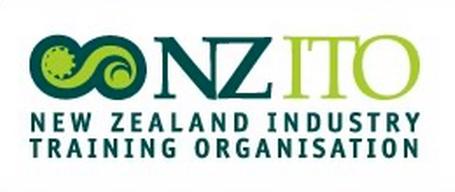While 140,000 people are gaining skills through industry training every year, New Zealand’s ‘skills gap’ is predicted to widen. That gap, between supply of and demand for, skilled workers could slow productivity and stall economic growth.
However, industry, or work-based, training has gained momentum over recent years, with industry trainees or apprentices achieving 54,000 national qualifications annually.
“There is a massive pool of talent among the 70 per cent of school leavers who do not attend university, and we’d like to see even more young people choosing industry training,” says Industry Training Federation (ITF) CEO Mark Oldershaw. “But to make sure that the training results in sustainable jobs, it must be based on the job market.”
The ITF, which represents all 12 of New Zealand’s Industry Training Organisations (ITOs) has released an open letter asking the government for changes to create more cohesion and efficiency in the industry-training sector.
“To keep up with our own growth, and with global and technological challenges, we need to be smarter, quicker and focused on the needs of industry,” says Mark.
“The first step is to enable industry to guide the development of training and qualifications. Historically it has been hard to get businesses involved because of barriers such as time, cost and complexity. We need to make it easier for industry to guide us, to ensure training results in workers with the right skills at the right time.”
The benefits of industry training for New Zealand businesses are becoming more widely recognised by employers across all sectors.
Competenz, an ITO representing the manufacturing, engineering, forestry and food and beverage industries (to name a few), receives constant feedback from employers who say on-the-job staff training is contributing to their success, says Mark.
Hydroponics company Bluelab says training has boosted team morale and business success considerably.
“Training ensures the team has the best possible skills to meet the competitive market head on,” says Bluelab production manager Mandy Jarvis.
Martin Beever, from Beef Jerky company Jack Links, echoes this sentiment, saying training has contributed to the increase in exports.
“As we grow the business we need to learn to grow in confidence, and with confidence we build efficiency, productivity and business success,” says Martin.
But Mark says although industry training success is widespread, industry experience is needed at a broader, strategic level to ensure training and qualifications remain relevant.
“Our current shortage of builders is a reminder of the need to be better prepared,” he says. “We’ve known for some time about the growing demand in construction, especially in Christchurch and Auckland, and we’re suddenly desperate for 5,000 building apprentices. If we work closer with industry and move more quickly, we can avoid these shortages.”
Auckland’s ‘workforce roadmap’, aims to do just that. An alliance of tertiary education providers in the wider Auckland area (including four ITOs, the Manukau Institute of Technology and Unitec), have been working with major construction and infrastructure industry players to get ahead of the game.
“The tertiary education sector has not been as well connected to industry as it should be,” says development manager for the Alliance Graham Hodge.
“We need to ensure the qualifications are better aligned to future workforce needs and to do this we must listen closely and carefully to industry.”
Fletcher; Hawkins; Naylor Love Construction; Dominion Constructors Ltd; the NZ Transport Agency; and the Auckland Council are jointly sponsoring the roadmap, which will guide skills needed in construction and infrastructure for the next five years.
“Once, we find out what the industry needs, it’s up to us to deliver the right qualifications, the right skills,” says Hodge.
Auckland’s workforce roadmap sets a direction for others to follow.
“This collaboration is a great example of what one sector can achieve,” says Mark. “And it’s necessary across all sectors,” says Mark. “We’re asking for a Government-Industry Task Force to ensure industry can guide and lead the future of industry training. Then we can really bridge the skills gap and make more of a difference to economic growth.”
* The ITF is a voluntary membership organisation representing all of New Zealand's Industry Training Organisations.






